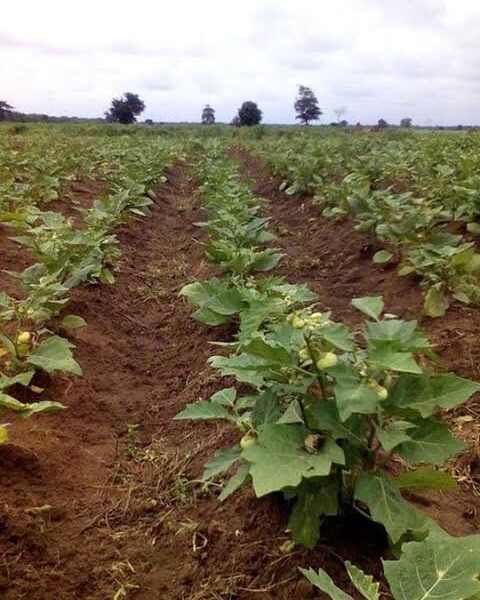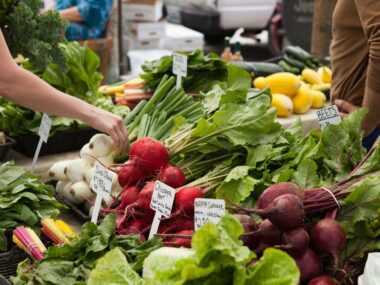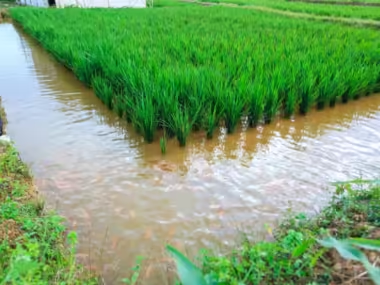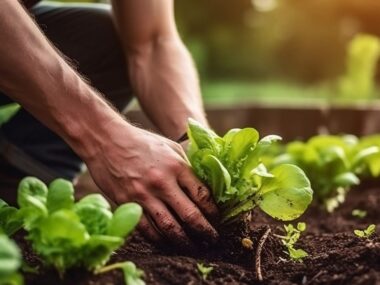Garden egg cultivation, also known as eggplant or aubergine farming, can be made more sustainable through the adoption of organic farming methods and environmental conservation measures. Organic farming prioritizes soil health, biodiversity, and environmental sustainability while minimizing the use of synthetic inputs such as chemical fertilizers and pesticides.
In this essay, we will explore various sustainable practices that can be implemented in garden egg cultivation to promote ecological balance, conserve natural resources, and ensure long-term viability.
Soil Health and Fertility
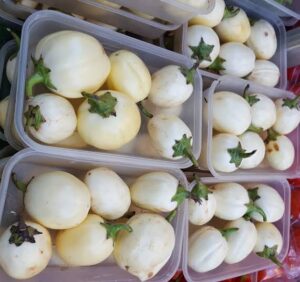
Organic farming emphasizes building and maintaining soil health through natural means. Practices such as crop rotation, cover cropping, and composting can improve soil structure, increase nutrient availability, and enhance microbial diversity.
For garden egg cultivation, rotating crops with legumes like beans or peas can fix nitrogen in the soil, reducing the need for synthetic fertilizers. Additionally, incorporating organic matter such as compost or mulch can enrich the soil with essential nutrients, improve water retention, and suppress weeds.
Natural Pest and Disease Management
Organic farming relies on natural methods for pest and disease management, rather than chemical pesticides. Integrated Pest Management (IPM) strategies, such as biological control, crop diversity, and habitat manipulation, can help reduce pest pressure while minimizing environmental impact.
For example, planting flowering plants to attract beneficial insects like ladybugs and lacewings can help control aphids and other garden pests. Similarly, maintaining diverse plant species in and around the garden can disrupt pest lifecycles and promote natural predators.
Water Conservation
Water conservation is essential for sustainable agriculture, especially in regions prone to drought or water scarcity. Practices such as drip irrigation, rainwater harvesting, and mulching can help optimize water use efficiency in garden egg cultivation. Drip irrigation delivers water directly to the plant’s root zone, minimizing evaporation and reducing water waste. Rainwater harvesting systems, such as rain barrels or cisterns, can capture and store rainwater for irrigation during dry periods. Mulching with organic materials like straw or wood chips can help retain soil moisture, suppress weeds, and moderate soil temperature.
Biodiversity and Habitat Preservation
Organic farming promotes biodiversity by creating habitats for native plants and animals within agricultural landscapes. Hedgerows, wildflower strips, and buffer zones can provide shelter, food, and nesting sites for beneficial insects, birds, and other wildlife.
By enhancing biodiversity, organic farmers can support natural pest control, improve pollination services, and maintain ecosystem resilience. In garden egg cultivation, preserving natural habitats and integrating diverse plant species can help create a balanced ecosystem that promotes plant health and productivity.
Conservation Tillage and Soil Erosion Control
Conservation tillage practices, such as no-till or reduced tillage, can help minimize soil disturbance and erosion in garden egg fields. By leaving crop residues on the soil surface, conservation tillage protects the soil from erosion, improves water infiltration, and enhances soil organic matter content.
Cover crops, such as legumes or grasses, can also be planted during fallow periods to provide ground cover and prevent soil erosion. These practices help maintain soil structure, reduce nutrient runoff, and mitigate the negative impacts of erosion on water quality and ecosystem health.
Renewable Energy and Energy Efficiency
Incorporating renewable energy sources and improving energy efficiency can further enhance the sustainability of garden egg cultivation. Solar-powered irrigation systems, energy-efficient lighting, and on-farm renewable energy generation can reduce reliance on fossil fuels and minimize greenhouse gas emissions. Additionally, optimizing farm operations, such as equipment use and transportation, can help conserve energy and reduce environmental footprint.
Community Engagement and Education
Promoting sustainable practices in garden egg cultivation requires community engagement and education initiatives. Farmers can benefit from training programs, workshops, and demonstrations on organic farming methods, environmental conservation, and sustainable agriculture. By sharing knowledge and best practices within the community, farmers can build capacity, foster innovation, and create a culture of sustainability that extends beyond individual farms.
Conclusion
Sustainable practices in garden egg cultivation are essential for preserving natural resources, protecting the environment, and ensuring the long-term viability of agriculture. By adopting organic farming methods and environmental conservation measures, farmers can enhance soil health, promote biodiversity, conserve water, and reduce reliance on synthetic inputs. These sustainable practices not only benefit the environment but also contribute to improved farm productivity, resilience, and profitability.
With a holistic approach to sustainability, garden egg cultivation can thrive while safeguarding the health of ecosystems and communities for generations to come.
